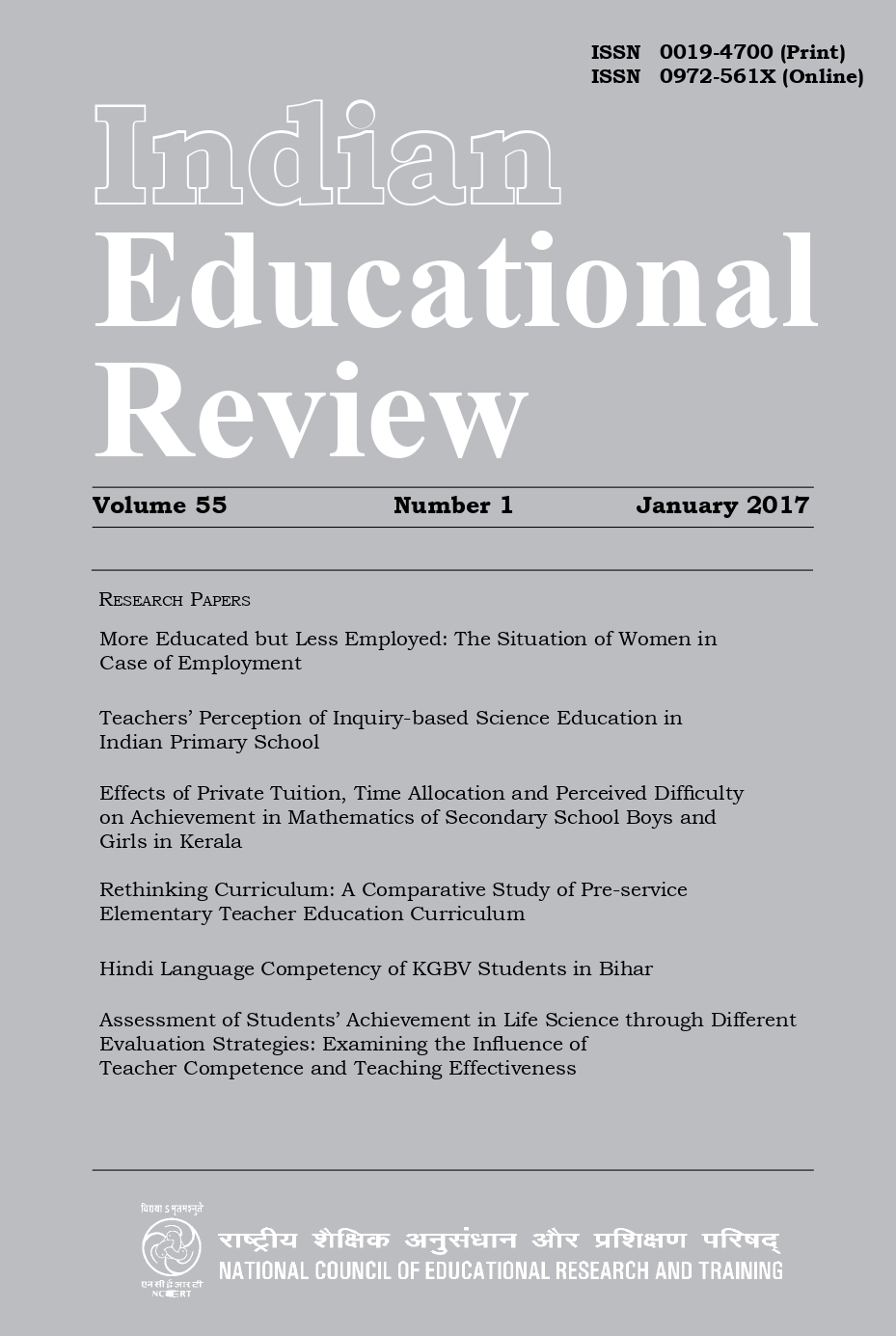Published 2017-01-31
Keywords
- National Family Health Survey,
- World Economic Forum, 2016
How to Cite
Abstract
The National Family Health Survey (2005–06) shows a striking trend of employment among men and women. Women are found to be enrolled more in traditional, domestic, and low-skilled jobs. Females’ less representation in the economic outcomes lead to weakening of their actual potential. Ultimately their participation is assumed to be negligible in the economy. The resulting inequalities tend to restrict women’s access to resources, control over decision-making and participation in public life. This paper argues that education, expected as a process of building confidence and decision-making power in individual, has not been able to make any change in the lives of girls. Education is not making any difference to their participation in employment sector. The pattern of division of work among men and women still persists as society accepts patriarchal culture. Actual reality lies in the fact that formulation of policies and educational programmes alone is not enough to bridge this gap; rather, there is a need to recognise women’s actual potential through education and employment opportunities which caters to their needs.

